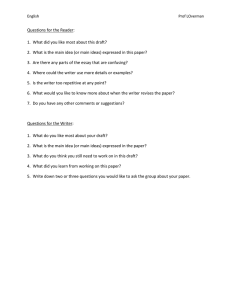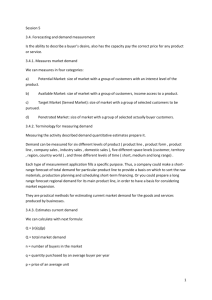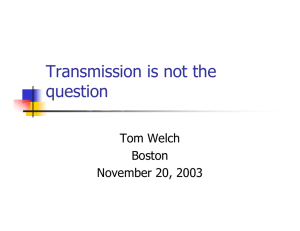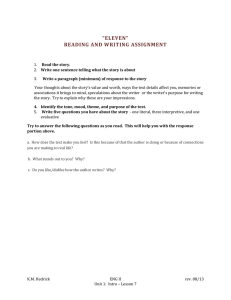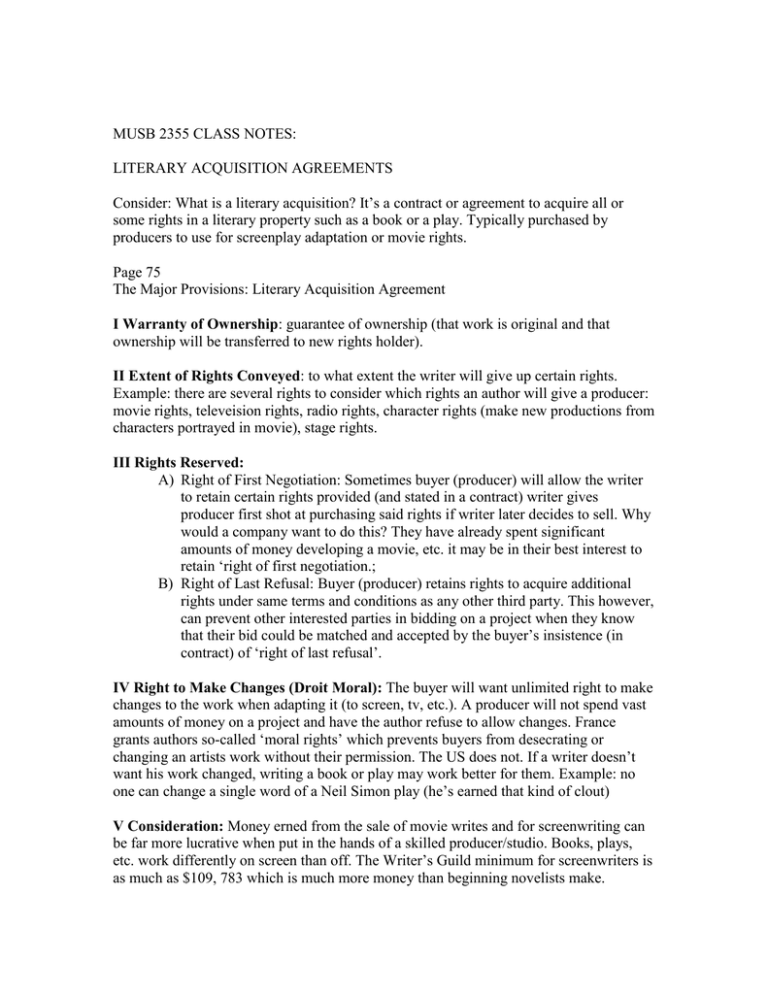
MUSB 2355 CLASS NOTES:
LITERARY ACQUISITION AGREEMENTS
Consider: What is a literary acquisition? It’s a contract or agreement to acquire all or
some rights in a literary property such as a book or a play. Typically purchased by
producers to use for screenplay adaptation or movie rights.
Page 75
The Major Provisions: Literary Acquisition Agreement
I Warranty of Ownership: guarantee of ownership (that work is original and that
ownership will be transferred to new rights holder).
II Extent of Rights Conveyed: to what extent the writer will give up certain rights.
Example: there are several rights to consider which rights an author will give a producer:
movie rights, televeision rights, radio rights, character rights (make new productions from
characters portrayed in movie), stage rights.
III Rights Reserved:
A) Right of First Negotiation: Sometimes buyer (producer) will allow the writer
to retain certain rights provided (and stated in a contract) writer gives
producer first shot at purchasing said rights if writer later decides to sell. Why
would a company want to do this? They have already spent significant
amounts of money developing a movie, etc. it may be in their best interest to
retain ‘right of first negotiation.;
B) Right of Last Refusal: Buyer (producer) retains rights to acquire additional
rights under same terms and conditions as any other third party. This however,
can prevent other interested parties in bidding on a project when they know
that their bid could be matched and accepted by the buyer’s insistence (in
contract) of ‘right of last refusal’.
IV Right to Make Changes (Droit Moral): The buyer will want unlimited right to make
changes to the work when adapting it (to screen, tv, etc.). A producer will not spend vast
amounts of money on a project and have the author refuse to allow changes. France
grants authors so-called ‘moral rights’ which prevents buyers from desecrating or
changing an artists work without their permission. The US does not. If a writer doesn’t
want his work changed, writing a book or play may work better for them. Example: no
one can change a single word of a Neil Simon play (he’s earned that kind of clout)
V Consideration: Money erned from the sale of movie writes and for screenwriting can
be far more lucrative when put in the hands of a skilled producer/studio. Books, plays,
etc. work differently on screen than off. The Writer’s Guild minimum for screenwriters is
as much as $109, 783 which is much more money than beginning novelists make.
VI Indemnification: A buyer needs certain warranties about the work being purchases.
Buyer must be assured that work does not defame anyone or invade anyone’s privacy or
infringe on another’s copyright. Buyers want: absolute warranties. Writers want
warranties based on the best of writer’s knowledge and belief. Buyers want writers to
stand behind their warranties and indemnify buyers in the event a warranty is breached.
When a writer indemnifies a buyer, the writer is agrees to reimburse buyer for litigation
costs because of writer’s breach of warranty.
VII Protection of Copyright: Buyer will usually purchase E&O insurance for writer
(this way, the insurance company pays for all litigation costs). As of 1978, copyright has
been extended to life of the author + 70 years. There’s not much concern of letting work
fall inadvertently into the public domain (prior to 1978, copyright lasted 28 years and
could be renewed once at the end of the 28 year period before defaulting to public
domain).
VIII Credit:
A) Right to use name to promote: Buyer will want right to use author’s name
for promotional purposes if necessary
Billing Credit: original author will want credit for original work
IX No Obligation to Produce: this contract does not obligate the studio to produce a
film. If they do not produce a film, the rights will revert back to the author in the time
period stated in the contract
X Assignment: producer/studio has the right to assign a project on the same terms and
conditions as originally agreed to in initial contract with righter.
XI Restrict Publicity: Buyer would like writer to refrain from publicity activities unless
they are with consent of buyer.


